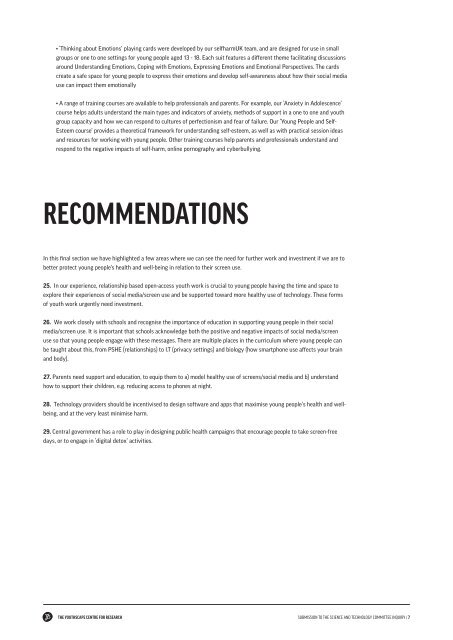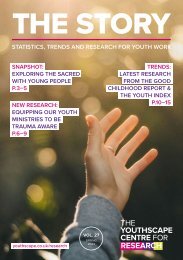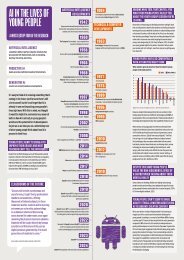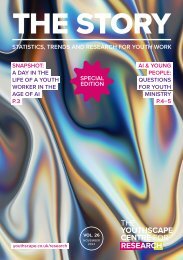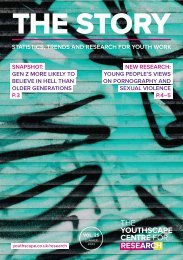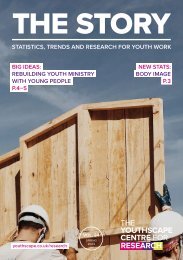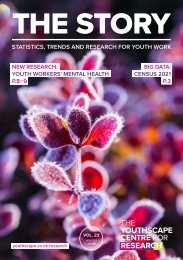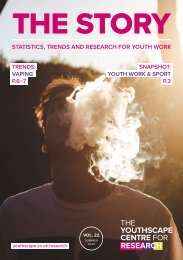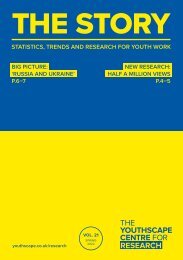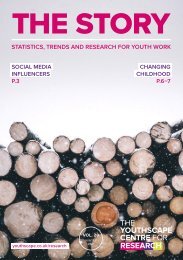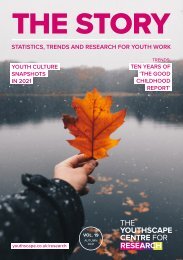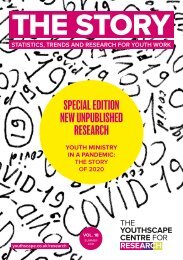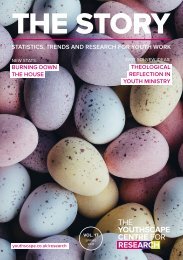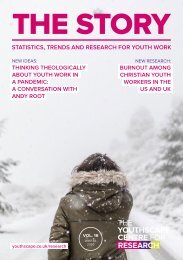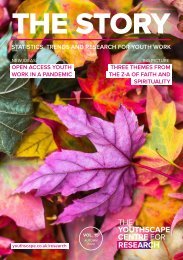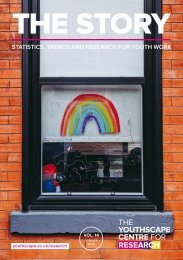Parliamentary Submission April 2018
Create successful ePaper yourself
Turn your PDF publications into a flip-book with our unique Google optimized e-Paper software.
• ‘Thinking about Emotions’ playing cards were developed by our selfharmUK team, and are designed for use in small<br />
groups or one to one settings for young people aged 13 - 18. Each suit features a different theme facilitating discussions<br />
around Understanding Emotions, Coping with Emotions, Expressing Emotions and Emotional Perspectives. The cards<br />
create a safe space for young people to express their emotions and develop self-awareness about how their social media<br />
use can impact them emotionally<br />
• A range of training courses are available to help professionals and parents. For example, our ‘Anxiety in Adolescence’<br />
course helps adults understand the main types and indicators of anxiety, methods of support in a one to one and youth<br />
group capacity and how we can respond to cultures of perfectionism and fear of failure. Our ‘Young People and Self-<br />
Esteem course’ provides a theoretical framework for understanding self-esteem, as well as with practical session ideas<br />
and resources for working with young people. Other training courses help parents and professionals understand and<br />
respond to the negative impacts of self-harm, online pornography and cyberbullying.<br />
RECOMMENDATIONS<br />
In this final section we have highlighted a few areas where we can see the need for further work and investment if we are to<br />
better protect young people’s health and well-being in relation to their screen use.<br />
25. In our experience, relationship based open-access youth work is crucial to young people having the time and space to<br />
explore their experiences of social media/screen use and be supported toward more healthy use of technology. These forms<br />
of youth work urgently need investment.<br />
26. We work closely with schools and recognise the importance of education in supporting young people in their social<br />
media/screen use. It is important that schools acknowledge both the positive and negative impacts of social media/screen<br />
use so that young people engage with these messages. There are multiple places in the curriculum where young people can<br />
be taught about this, from PSHE (relationships) to I.T (privacy settings) and biology (how smartphone use affects your brain<br />
and body).<br />
27. Parents need support and education, to equip them to a) model healthy use of screens/social media and b) understand<br />
how to support their children, e.g. reducing access to phones at night.<br />
28. Technology providers should be incentivised to design software and apps that maximise young people’s health and wellbeing,<br />
and at the very least minimise harm.<br />
29. Central government has a role to play in designing public health campaigns that encourage people to take screen-free<br />
days, or to engage in ‘digital detox’ activities.<br />
THE YOUTHSCAPE CENTRE FOR RESEARCH SUBMISSION TO THE SCIENCE AND TECHNOLOGY COMMITTEE INQUIRY / 7


